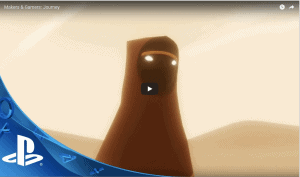Developer The Creative Assembly Publisher Sega
Genre RTS Platform Played On PC
The Roman Empire has split in two, nomadic tribes wander the countryside, and a new and ruthless power rises in the east. So begins Total War: Attila, the follow up to The Creative Assembly’s 2013 title Total War: Rome II, and the conclusion to the trilogy depicting the rise and fall of the Roman Empire. Players choose from ten playable factions (fifteen including the day one DLC pack) ranging from the nomadic hordes of the Visigoths and Vandals to the well established Sassenid Empire.
Each faction offers a different campaign with its own pros and cons, and even at low difficulty levels, Attila provides a promising challenge. Play as a large empire and find your army spread thin; play as a nomadic horde and find yourself unable to settle down for too long. Several of the playable nations begin with no home city. For the nomadic hordes, plundering and razing cities is the order of the day. Playing as one of these factions can be frustrating for newcomers, as many of the city-specific bonuses are not available. However, they thrive on the horde mechanics, gaining bonuses for setting camp as well as packing up to move. . An impressively accurate representation of the era, the campaign itself is driven by a wide variety of forces, many of which are outside of your control. Your empire faces possible military defeat, detrimental climate changes, disease, famine, and diplomacy crises. Cinematics tailored to your chosen faction spread throughout gameplay tell the story of the rise of Attila and the Huns.
Luckily, the game’s prologue, in which you will take up the role of the Visigoths in the middle of a civil war with the Ostrogoths, is a fairly comprehensive tutorial. Your advisor (a particularly verbose floating head in the top left corner of the screen) walks you through the basics of city building and unit recruiting, but glosses over a few of the finer details, such as unit upkeep costs and the grouping together of units in battle. As a newcomer to the series unfamiliar with the game mechanics, I felt a little unprepared for more than one battle. That did not prevent me from enjoying the experience; Even in the prologue, I found myself more invested in the movements of my troops than I expected. Though winning my first battle took a few failed attempts, when I did manage to capture it, I was incredibly proud to realize that I had not lost a single unit.
Battles are the hallmark of the Total War series, and Attila is no exception. The real time confrontations are fast paced and intense affairs where one mistake can have disastrous consequences. I recommend pausing frequently to reposition troops, for which there are a wide variety of formations, unit specific options, and even stances. There is something deeply satisfying about watching archers loose flaming arrows as you zoom in on melee units tearing each other apart. I am not referring to the enjoyment of the violence itself, but of the knowledge that you have outplayed the opponent. Should a unit take too many losses, they may turn and flee in fear. Fortunately, it is possible for them to rally and return to the fray. The battlefield may be where Total War: Attila shines tactically, but it is not the only place you can lose units. Early on in my playthrough, I ran low on food and my units began deserting, which left my cities undefended and my attacking force less than useful. This provided me with yet another enemy: hunger.
Total War: Attila offers many systems typical of strategy games, including the ability to upgrade buildings and cities, recruit units, and even a small technology tree. Diplomatic relations between nations, including trade, are possible but occasionally frustrating. The AI often refused what seemed to me a fair trade, and I found myself making absurd offers in order to come up with something it would accept.
Perhaps most interesting is the family screen in each faction. It is here that players can assign nobles and family members to office, choose an heir, and even marry daughters off to solidify alliances. Control over your family and faction ranges from insignificant to absolute, and both can lead to unpleasant circumstances. The addition of internal strife to an empire struggling to thrive in a turbulent era adds yet another dimension to a game that already offers plenty of interesting systems. In addition to an overview of your faction’s politics, you are able to manage the influence and development of each member of your family. Each relative can develop qualities ranging from “respectful” to “procrastinator.” Promote a brother to a general, then develop and hone his skills, and he may be your saving grace late in the game. Should he gain a significant amount of influence, he can be used as a tool to avoid losing control of your faction.
Though Attila offers great graphics, music, and gameplay, it occasionally suffers from a few frustrating glitches. Within the single player campaign, the lag time between turns is long enough to take a snack break. This is fine when there is a lot to do, but early on when you are just building up your faction and not doing a whole lot of movement, the wait can become a bit dull. That said, as you move through the game and eliminate opposition, the time between turns decreases. My computer also struggled with a low framerate throughout the game.
Overall, Total War: Attila serves as a solid, if occasionally complex, installment to the Total War series. Though the game’s many systems add layers of intrigue and empire management, they can occasionally feel overwhelming, especially for new players. That said, the game offers much in the way of variety and provides players with the challenging task of surviving in increasingly harsh environments.
The Good
- Challenging, multi-layered gameplay systems
- Well constructed historic atmosphere
- New horde mechanics cater to varied play styles
The Bad
- Occasional glitches
- Lengthy loading times
- Steep learning curve for new players



